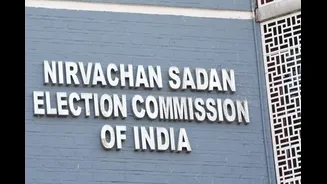The Election Commission on Monday announced the second phase of the Special Intensive Revision (SIR) of electoral rolls across 12 states and Union Territories, but notably left out Assam, a state also
due to go to polls in April–May 2026 along with Tamil Nadu, West Bengal, Goa and Puducherry.
Chief Election Commissioner (CEC) Gyanesh Kumar clarified that Assam’s exclusion was linked to the ongoing monitoring of the state’s citizenship records by the Supreme Court, following the National Register of Citizens (NRC) process.
“There are separate provisions for Assam’s citizenship in the Law, & a drive to check valid citizens has already been done under Supreme Court’s observation. Thus, separate orders for SIR in Assam will be issued,” Kumar said at a press briefing in New Delhi.
He added that the scrutiny of citizenship records in Assam was nearing completion under the court’s supervision, and hence, the all-India SIR order “would not have been applicable to Assam at this stage.”
The second phase of the SIR will cover 12 states and UTs — Andaman and Nicobar Islands, Goa, Puducherry, Chhattisgarh, Gujarat, Kerala, Madhya Pradesh, Uttar Pradesh, Rajasthan, West Bengal, Tamil Nadu and Lakshadweep — encompassing nearly 51 crore voters. The enumeration exercise is set to begin on November 4.
The SIR, which aims to update and clean up electoral rolls, has been concluded in Bihar with the final list with nearly 7.42 crore electors published on September 30. Polling in the state will be held in two phases, on November 6 and November 11, and the counting will take place on November 14.
Assam’s voter list remains closely tied to the outcomes of the NRC — a massive citizenship verification drive carried out under Supreme Court supervision and published in August 2019.
The final NRC list had excluded around 19 lakh applicants from citizenship rolls, leading to a series of legal and administrative challenges. The process of issuing rejection slips to excluded individuals and preparing an updated citizenship database remains unfinished, leading to judicial oversight.
(With inputs from PTI)


















